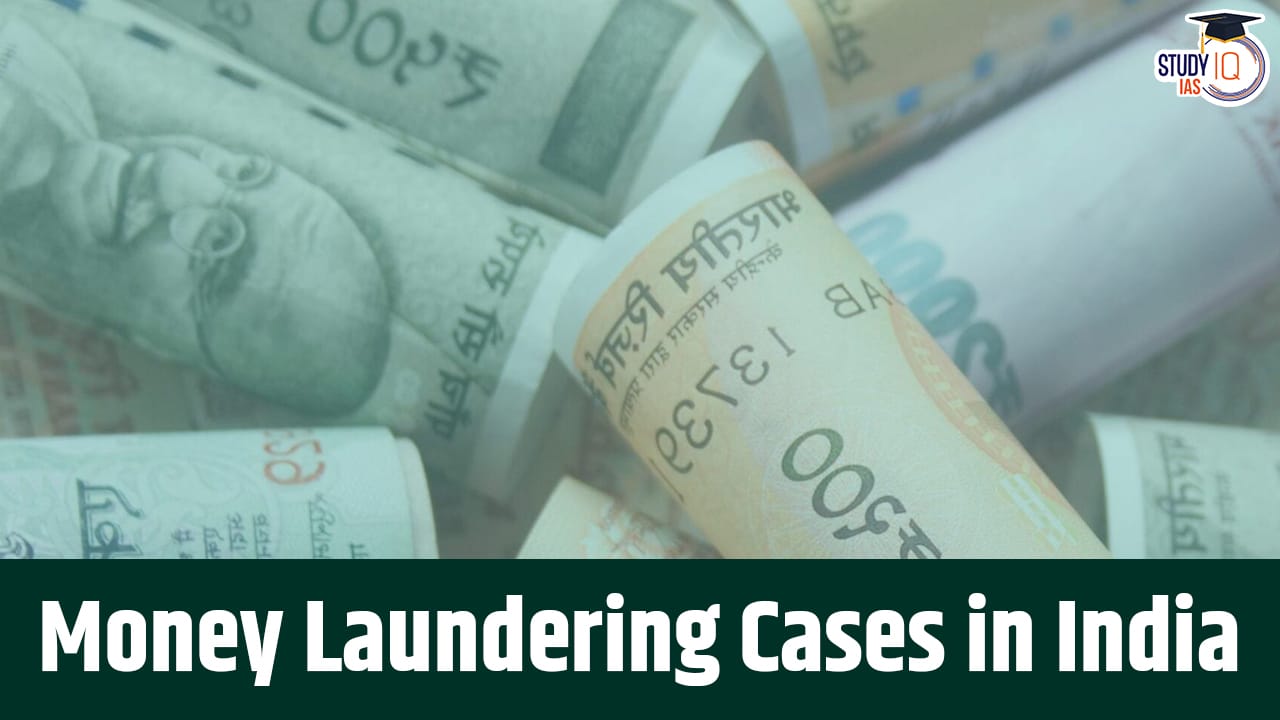Table of Contents
SC on Bail in Money Laundering cases
The Supreme Court of India has progressively shifted its stance on bail, especially in the context of money laundering cases under the Prevention of Money Laundering Act (PMLA).
More in News
- The court has increasingly emphasised the legal principle that “jail is the exception, bail is the rule,” affirming that prolonged pre-trial incarceration is a form of punishment itself.
- This shift is marked by several key rulings that highlight a departure from previous stringent interpretations of the PMLA.
Supreme Court Key Rulings and Developments
- Prem Prakash vs Enforcement Directorate:
- The Supreme Court underlined the established principle that bail should be the norm even under the stringent provisions of the PMLA.
- Vijay Madanlal Chaudhary v Union of India:
- Two years prior, the Supreme Court upheld the stringent provisions of the PMLA. This ruling was met with concerns over potential misuse by the government, particularly against political opponents.
- Recent Modifications in Court Decisions:
- In October 2023, Justices A S Bopanna and P V Sanjay Kumar mandated that the Enforcement Directorate (ED) must provide written grounds for arrest to the accused.
- This was deviation from the earlier Vijay Madanlal ruling which did not require sharing the ECIR (akin to an FIR for the ED) with the accused.
- In July, during the bail hearing of Delhi Chief Minister Arvind Kejriwal in the excise policy case, the Supreme Court raised significant questions about the ED’s broad arrest powers.
- This requires that the ED’s “reasons to believe” for an arrest be provided in writing, allowing the accused to challenge the legality of an arrest.
- In October 2023, Justices A S Bopanna and P V Sanjay Kumar mandated that the Enforcement Directorate (ED) must provide written grounds for arrest to the accused.
- Implications for Bail Considerations:
- The Supreme Court has relaxed the interpretation of bail laws in recent cases:
- In the case of Manish Sisodia, the Court considered the delay in trial as a factor for bail eligibility.
- In “Ajay Ajit Peter Kerkar vs Directorate of Enforcement“, the Court extended the principle that if a person has spent half of the maximum sentence as an undertrial, they should be released on bail, even in money laundering cases.
- This was a significant advancement from the 2022 ruling that did not acknowledge the presumption of innocence as a constitutional guarantee.
- The Supreme Court has relaxed the interpretation of bail laws in recent cases:
Money Laundering Cases in India
Money laundering in India has been a significant concern for law enforcement agencies and the government for several years. It involves the process of disguising the illegal origin of money to make it appear legitimate. This practice can have far-reaching consequences, including fueling corruption, terrorism, and organized crime.
Money launderers employ various methods to disguise the proceeds of crime, including:
- Cash Smuggling: Physically transporting large sums of cash across borders.
- Trade-Based Money Laundering: Over- or under-invoicing goods in international trade transactions.
- Real Estate Investments: Purchasing property with illicit funds.
- Shell Companies: Creating fictitious companies to launder money.
- Hawala Systems: Informal money transfer systems that operate outside the formal banking system.
| Notable Money Laundering Cases in India |
|
Conclusion
The Supreme Court has indicated the need to revisit its 2022 ruling on the PMLA to align with the evolving judicial perspective on bail and procedural safeguards for the accused. This suggests an ongoing judicial effort to balance law enforcement objectives with individual rights, signalling a potential overhaul of previous interpretations that heavily favoured prosecutorial powers.


 Top 10 Economies in the World 2025, Chec...
Top 10 Economies in the World 2025, Chec...
 Minors Bank Account above 10 Years: Chan...
Minors Bank Account above 10 Years: Chan...
 Creative Economy in India, Current Situa...
Creative Economy in India, Current Situa...





















